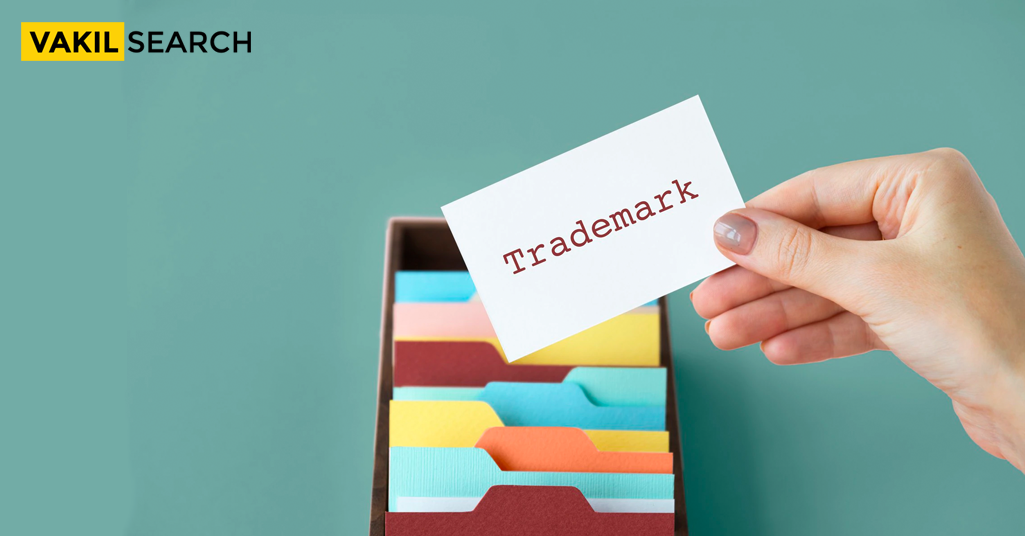Discover what cannot be trademarked in the USA. Learn about generic and descriptive terms, offensive words, and more. Check existing trademarks before registering.
Overview
Trademark is an important legal concept that allows individuals and businesses to protect their brand names, logos, and other intellectual property. In the United States, the US Patent and Trademark Office (USPTO) is responsible for granting trademarks, but not everything can be trademarked. In this blog post, we will explore what cannot be trademarked in the USA.
What Is a Trademark?
A trademark serves as a crucial tool in helping consumers identify your business as the source of a product or service. By obtaining a strong federal trademark, you can effectively market your brand and establish brand recognition. This distinction is essential as you strive to set your business apart from others in your industry, enabling consumers to easily recognize and connect with your products or services in the marketplace. Ultimately, a federally registered trademark empowers you to expand and grow your business.
Trademark Eligibility Criteria in the USA
Distinctiveness Requirement
A trademark must be distinctive in order to be eligible for registration. Distinctiveness means that the mark must be capable of identifying and distinguishing the goods or services of one party from those of others. There are five levels of distinctiveness:
- Generic: A generic mark is a word or phrase that is the common name for a type of good or service. Generic marks are not eligible for trademark registration.
- Descriptive: A descriptive mark is a word or phrase that describes the goods or services that it is used to identify. Descriptive marks are eligible for trademark registration, but they must acquire distinctiveness through use in commerce.
- Suggestive: A suggestive mark is a word or phrase that suggests the qualities or characteristics of the goods or services that it is used to identify. Suggestive marks are eligible for trademark registration without having to acquire distinctiveness through use in commerce.
- Arbitrary: An arbitrary mark is a word or phrase that has no inherent connection to the goods or services that it is used to identify. Arbitrary marks are eligible for trademark registration without having to acquire distinctiveness through use in commerce.
- Fanciful: A fanciful mark is a word or phrase that is invented and has no meaning other than as a trademark. Fanciful marks are eligible for trademark registration without having to acquire distinctiveness through use in commerce.
Functionality Requirement
A trademark cannot be registered if it is functional. A functional mark is a mark that is essential to the use or purpose of the goods or services that it is used to identify. For example, the shape of a bottle or the design of a computer mouse are functional marks and cannot be registered.
Prohibited Subject Matter
There are certain types of subject matter that cannot be registered as trademarks. These include:
- Names, surnames, and personal pseudonyms
- Titles, slogans, and phrases that are merely descriptive or laudatory
- Marks that are likely to deceive the public
- Marks that are identical or confusingly similar to marks that are already registered
- If you are considering registering a trademark, it is important to consult with an attorney to ensure that the mark is eligible for registration.
Exceptions and Limitations
The USPTO has specific guidelines in place to determine which marks are eligible for trademark registration. One crucial requirement is that the proposed mark should not be confusingly similar to an existing mark in use. It is essential to conduct a comprehensive trademark search before submitting your application to ensure that your mark is unique and does not conflict with any existing marks.
Generic or descriptive words are generally not eligible for trademark protection. For example, a toy named “Fun Toy” would not be approved by the USPTO as it cannot prevent others from using the word “fun” to describe their toys.
Surnames are also considered descriptive, and while it is possible to obtain a trademark for a surname, it can be a more challenging process requiring substantial documentation to prove the name represents your business.
Previously, obscene words and symbols were not eligible for trademark registration, but a Supreme Court ruling in June 2019 lifted the ban on trademarking “immoral” or “scandalous” words or symbols.
It’s important to note that different forms of intellectual property protection may be necessary for different aspects of your business. Inventions, for instance, require a patent issued by the USPTO to protect against infringement, while works of authorship should be registered with the U.S. Copyright Office. Copyright protection applies to various creative works such as art, novels, songs, and computer coding. Consulting with an attorney can help you determine the best strategies for protecting your brand’s intellectual property.
What Cannot be Trademarked?
Generic Terms
Generic terms cannot be trademarked because they describe the product or service itself. For example, ‘apple’ cannot be trademarked to describe a fruit, but it can be trademarked to describe a brand of technology products. The USPTO will not grant trademarks for generic terms because they do not distinguish one product or service from another.
Descriptive Terms
Descriptive terms can only be trademarked if they have acquired a secondary meaning, which means that consumers associate the term with a particular product or service. For example, ‘sharp’ cannot be trademarked to describe a knife because it is a descriptive term. However, ‘Sharpie’ can be trademarked because it has acquired a secondary meaning as a brand of markers.
Offensive or Immoral Words
Trademarks that contain offensive or immoral words or phrases are not eligible for registration. The USPTO has guidelines that prohibit trademarks that contain words or phrases that are offensive or immoral. For example, a USA trademark registration that includes a racial slur would not be allowed.
Governmental Symbols
Governmental symbols, such as the United States flag, cannot be trademarked because they belong to the public domain. The USPTO will not grant trademarks for any symbol, emblem, or insignia that is associated with a governmental agency.
Geographical Names
Geographical names cannot be trademarked if they describe a geographic location. For example, ‘New York City Pizza’ cannot be trademarked because it is a descriptive term. However, a business may be able to trademark a geographical name if it has acquired a secondary meaning as a brand name, such as ‘Brooklyn Brewery.’
Reasons for Not Trademarking in US
There are several reasons why something may not be eligible for trademark protection in the United States. One reason is that it may be considered too generic, meaning that it is simply a descriptive term that cannot be exclusively associated with one particular product or service. Additionally, a mark that is considered immoral or offensive would not be eligible for trademark protection. This includes marks that are racist, sexist, or otherwise discriminatory.
Another reason why something may not be eligible for trademark protection is if it is too similar to an existing trademark. This can cause confusion among consumers and could potentially harm the reputation of the original trademark holder. Similarly, geographical names and symbols associated with the government are generally not eligible for trademark protection, as they are considered to be part of the public domain.
Finally, if a trademark is considered to be too similar to an existing common law trademark, it may not be eligible for federal registration. In these cases, the owner of the common law trademark may have established rights in the mark, even if they have not registered it with the USPTO.
In summary, there are several reasons why a mark may not be eligible for trademark protection in the US, including its level of distinctiveness, offensiveness, similarity to other marks, and its association with the public domain. It is important to carefully consider these factors when choosing a trademark to protect.
Trademark Search
If you are interested in trademarking a word, symbol, or slogan, you can do trademark search on the USPTO website (for US Trademarks). This will allow you to see if a similar trademark has already been registered and may prevent any potential conflicts or legal issues down the road.
Importance of Conducting a Trademark Search
In the United States, trademark protection follows a “first-to-use” principle, granting some limited rights simply by using the mark in commerce. However, these unregistered “common law” trademark rights typically offer narrow protection limited to the specific geographic area where your business operates.
When you plan to expand your business into new regions, you may encounter obstacles if a similar mark is already in use. Additionally, enforcing common law trademark rights in a legal proceeding can be challenging. To enjoy comprehensive protection and the presumption of validity nationwide, it is advisable to conduct a trademark search and register your trademark with the United States Patent and Trademark Office (USPTO).
Wrapping Up
In conclusion, while trademarks are an important tool for protecting intellectual property, not everything can be trademarked in the United States. The USPTO has guidelines in place to ensure that trademarks are unique and do not infringe on the public domain.
If you are interested in trademarking a particular term or symbol, it is important to check the status of existing trademarks to ensure that your trademark is original and does not infringe on the rights of others. Vakilsearch provides a dedicated team of experienced trademark attorneys who assist clients with the entire trademark registration process, from the initial trademark search to the final registration certificate. Our experts provide guidance with the latest updates as well.
FAQ
What can be trademarked USA?
USA has various types of marks can be trademarked, including words, phrases, logos, symbols, designs, and even sounds or scents that are distinctive and associated with specific goods or services.
Can a non English word be trademarked in the United States?
Yes, a non-English word can be trademarked in the United States. The USPTO does not restrict trademarks based on language, as long as the mark meets the other requirements for trademark registration, such as being distinctive and not causing confusion with existing marks.
Can a non U.S. citizen file a trademark?
Yes, non-U.S. citizens can file a trademark application with the USPTO. There is no requirement for trademark applicants to be U.S. citizens or residents. However, it is recommended to seek assistance from a trademark professional from Vakilsearch to navigate the application process effectively.
What Cannot be used as a trademark?
Certain categories of marks cannot be used as trademarks. This includes generic terms that describe the product or service, purely descriptive terms, marks that are likely to cause confusion with existing marks, and marks that are primarily surnames. Additionally, marks that are functional or ornamental in nature may not be eligible for trademark protection.
Also, Read:










